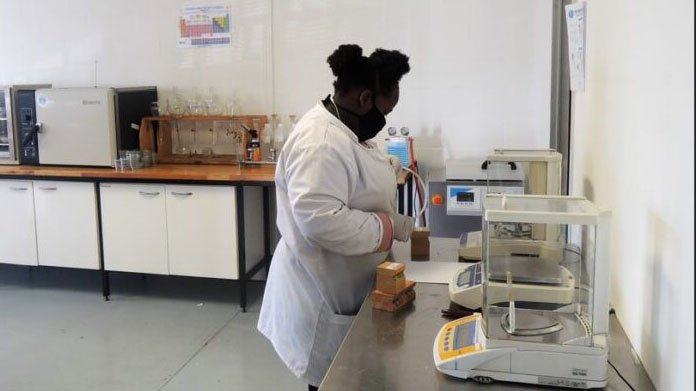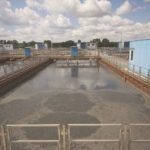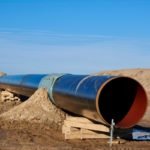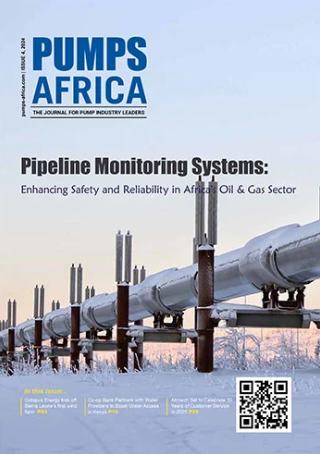Condition monitoring specialist company, WearCheck, has brought their sister company, Set Point Water Laboratories into the fold, adding a new division to WearCheck’s scientific testing structure.
The water analysis company is now integrated fully into WearCheck, and forms yet another area of expertise along with WearCheck’s other services, which include scientific used oil analysis, asset reliability care, transformer oil testing and lubricant-enabled reliability services.
Set Point Water Laboratories is ISO 17025:2017-accredited, and tests water from any source – ranging from drinking water to factory effluent, and everything in between – to determine the presence and levels of potentially harmful substances.
Set Point Water Laboratories was established in Johannesburg in 1998 as a minerals laboratory, then known as Set Point Laboratories. The company introduced water testing in 2013 and expanded with the launch of a Cape Town water laboratory in 2019, achieving accreditation of the Cape Town Laboratory in 2020, and thereafter focusing only on water analysis.
Thelma Horsfield, general manager of Set Point Water Labs, outlines their services, ‘Our laboratory technicians select the relevant tests for the water sample depending on the needs of the customer. They identify what is wrong with the water and advise customers on possible consequences of using / discarding such water.
‘Water analysis is conducted using various accredited techniques such as; photometric, electrometric, colorimetric, gravimetric, ICP-OES, ICP MS and enzyme substrates. These techniques obtain the best possible results in chemical and microbial analysis of effluent/wastewater, drinking water, processed water, surface water and groundwater.
Industrial operations
‘In the case of industrial operations needing to dispose of wastewater into a river system, the sea or even simply down the drain, there are strict by-laws that must be adhered to, outlining the “acceptable” levels of contaminants before disposal, to prevent possible fines or even prosecution. Our water technicians determine the exact levels of contaminants and advise on acceptable levels for safe discarding.
‘Many of our mining customers operate boreholes, using the water in the mining process. We regularly monitor the water quality from the boreholes to test whether contaminants from the mining process have leached into the water supply.
READ: Rwanda to build US $8M sewage sludge treatment plant
‘As an example – cyanide is commonly used in gold mining, the presence of this toxin must be constantly monitored. Uranium is commonly found in the ore with gold, and as uranium is radioactive, it is important to monitor the levels and check whether it has leached into the water supply. This is even an issue on disused mines and mine dumps – many of our customers living near these come to us to test the quality of their drinking water. Chromium-6, a carcinogenic element, is a by-product from chrome mines, so it is important to know if humans will be ingesting water with high levels of this.
‘Health is a primary reason for many of our customers for drinking water safety, both private and in the restaurant trade for making juices and coffees – and they want to know the hardness of their municipal water as it affects their coffee machines.
‘In addition to the above, scope water can be used for dialysis. It is important to note the patients on dialysis have little to no kidney function. Kidneys help compensate for the higher intake of substances obtained from food and drinks that would otherwise build up in the body. Dialyzing with pure water prevents the exposure of substances/toxins that cannot be eliminated from the body. We are currently doing some water quality checks for a renal unit to ensure suitability for dialysis
‘Irrigation water quality is a critical aspect of greenhouse crop production. Water with high alkalinity can affect nutrients uptake by the plants and cause nutrient deficiency which compromises plant health.
‘Borehole water testing is a popular item with customers who want to know whether the water is safe to use on their garden, to fill the pool, to drink and use in the household. In Cape Town, many boreholes have high salt content, and, after testing the water, some customers have to dilute it with municipal water or put processes in place to remove most of the salts.
‘Through WearCheck, our water facilities provide analytical services through an extensive network of operations in South Africa and internationally
‘And’, adds Horsfield, ‘as a result of the global Covid pandemic, we added alcohol content testing to our services as well as a newly introduced logistics solution to enable easy movement of water and sanitizer samples.’
Previously, WearCheck was part of the larger Set Point group until the company was bought by current owners Synerlytic in 2019, along with SetPoint Water Laboratories.







